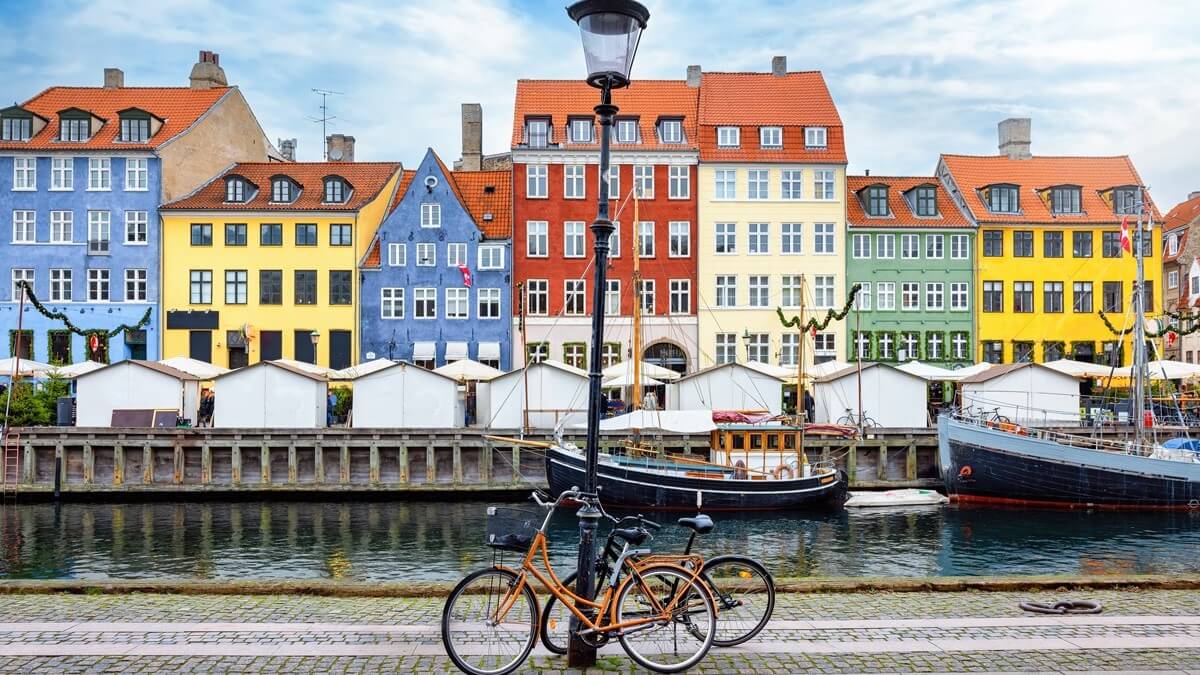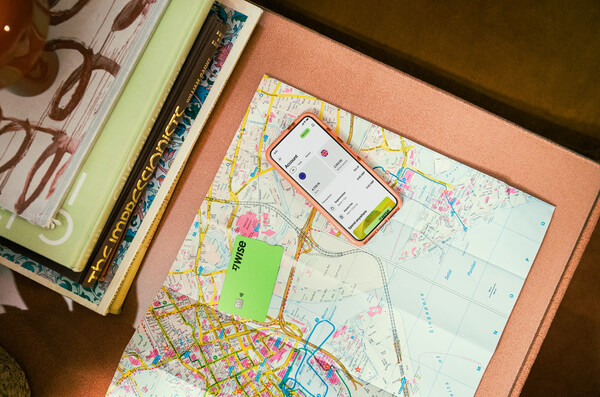
Is tap water in Denmark safe to drink? A traveller's guide
This is intended to serve as a general guide. Always check with official sources for the latest government and health advice.
Opting for tap water is often the most eco-friendly and cost-effective way to stay hydrated while traveling. But when you're in a new country, knowing if the tap water is safe is crucial to avoid any unexpected health risks. If you're headed to Denmark, you're likely wondering: is its tap water safe to drink?
The quick answer is yes. This guide will clearly explain why Denmark’s tap water is safe, and detail its quality to help you prepare for your trip. We’ll also introduce the Wise card, a useful travel companion to help you save on spending during your time there.
| Table of contents |
|---|
Is tap water safe to drink in Denmark?
Yes, tap water in Denmark is of excellent quality and safe to drink directly from the tap according to the Danish Environmental Protection Agency.1 Denmark sources almost all of its drinking water from groundwater reserves2 and the water is subject to strict daily quality controls, which ensures it is generally safe to drink.
While some residents may still choose bottled water or filters, this is typically for personal taste or preference rather than a concern about safety. As a practical tip, always check if your specific tap is safe for drinking. Although the public water supply is reliable, older building plumbing or other disruptions could affect the water quality.
Understanding Denmark's water quality
The primary official government authorities responsible for tap water quality and regulation include the Danish Ministry of Environment, the Danish Environmental Protection Agency,2 and the Danish Water Regulatory Authority. The Danish Environmental Protection Agency is responsible for Danish legislation on drinking water and groundwater protection, as well as providing oversight of the water utilities. At the local level, municipalities have the authority to approve control programs for local water utilities, which are responsible for operating the supply and ensuring the water meets quality criteria. The Danish Water Regulatory Authority enforces the Danish Water Sector Act, which regulates the financial framework for water companies to ensure efficiency and stable consumer prices.3
Sources of Denmark's tap water
Denmark's tap water supply comes almost entirely from groundwater, accounting for nearly 99% of the total supply.2 In some areas, such as the Capital Region, groundwater resources are under pressure due to high demand. To address this, some utilities use managed aquifer recharge, where surface water is infiltrated into the ground to supplement reserves.
The water undergoes minimal treatment due to its high natural quality. Treatment processes at waterworks typically involve oxygenation and sand filtration before it is pumped to consumers.¹ In rare cases, however, advanced water treatment is necessary to ensure satisfactory drinking water quality.2
Mineral content and taste of Denmark's tap water
Danish drinking water is generally soft, with low concentrations of minerals such as calcium and magnesium.¹² This contributes to its clean and pleasant taste. The water in the Copenhagen area, for example, has a hardness that is being softened from 30 dH (German degrees of hardness) to 8-12 dH, which is categorized as medium hard.4
The general taste profile is described as clean and fresh, with a chlorine taste rarely noticeable, as many water systems use little to no chlorine.
Heading to Denmark? Maximise your EUR spending with the Wise Card
Staying hydrated is key to a great trip, and so is managing your travel budget wisely in Denmark. The Wise card is a simple way to save when you're spending internationally, be it on bottled water, food or shopping. You can spend in 150+ countries, including Denmark, at mid-market rate — basically the rate you see on Google. With no foreign transaction fees and low, transparent pricing, Wise usually gives you the best value for your money.

Simply create a Wise account for free, order a card and top-up to get started. Having a physical Wise card allows you to make chip and pin payments, as well as make some free ATM withdrawals each month for when you're in Denmark. You can get digital cards and add to your Google or Apple Pay wallet for instant use. Spend directly with the Wise account and let auto-conversion do the trick or convert in advance to EUR. You can hold and exchange 40+ currencies in your Wise account and spend the currencies you hold for free.
Wherever your travel takes you, the Wise card makes spending money abroad cheaper and easier.
This general advice does not take into account your objectives, financial circumstances or needs and you should consider if it is appropriate for you.
Please see Terms of Use and product availability for your region or visit Wise Fees & Pricing for the most up to date pricing and fee information.
FAQs
Do I need to boil tap water in Denmark to make it safe?
Boiling tap water in Denmark is not necessary for the public water supply, as it is considered safe to drink.¹ However, if a municipality issues a "boil water" advisory due to a risk of harmful microorganisms, it is recommended to boil water for at least one minute before use.1
How does the taste and quality of tap water differ within Denmark?
The taste and quality of water can vary slightly by region due to different water sources and mineral content. Water hardness, for example, is generally low across the country, but specific areas may have different levels, which can influence taste.4
Is the ice served in restaurants and bars in Denmark safe to consume?
Yes, the ice served in restaurants and bars is generally safe to consume, as it is made from the public water supply which is deemed safe to drink throughout the country.1
Why do some people in Denmark use water filters if the tap water is safe?
Some people in Denmark use water filters primarily for personal taste preference due to a noticeable mineral taste, although the water is safe to drink without them.
Sources:
- Statistics Denmark: Drinking Water Quality
- Danish Environmental Protection Agency: Drinking Water
- Danish Competition and Consumer Authority: Water Regulation
- Geological Survey of Denmark: Drinking Water Hardness Map
*Please see terms of use and product availability for your region or visit Wise fees and pricing for the most up to date pricing and fee information.
This publication is provided for general information purposes and does not constitute legal, tax or other professional advice from Wise Payments Limited or its subsidiaries and its affiliates, and it is not intended as a substitute for obtaining advice from a financial advisor or any other professional.
We make no representations, warranties or guarantees, whether expressed or implied, that the content in the publication is accurate, complete or up to date.


